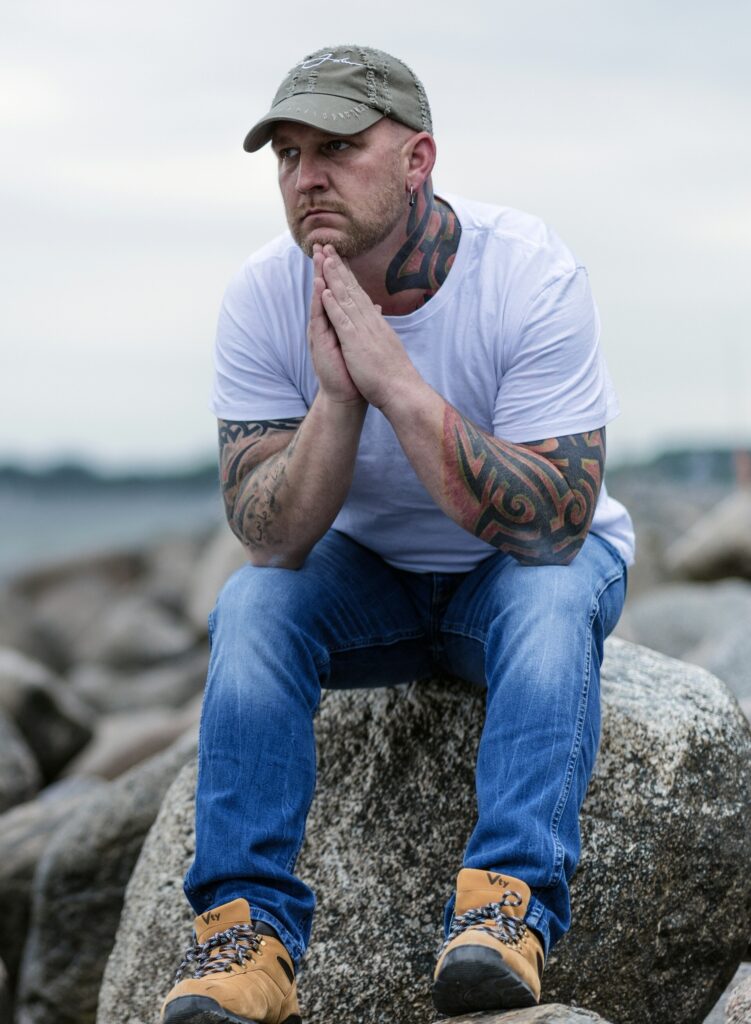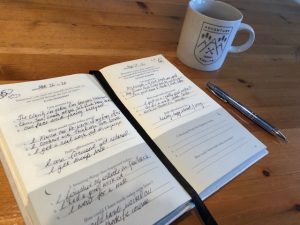Whether we’re just trying to navigate through our normal lives or dealing with these ‘unprecedented times’ feeling resilient can really make the difference. In this article, I’m going to show you how to build your resilience, just by being grateful.
Have you ever known someone who seems to be eternally happy no matter what the situation?
The kind of person that, whether the polar ice caps are melting, they’re facing a personal crisis, or perhaps a global pandemic, they remain positive, resourceful, and resilient?
My friend Hugh Culver is like this. It doesn’t matter if he is responding to urgent client requests, dealing with a flooded basement, or finishing off an 18-hour workday, he’s always positive.
Well if you’ve ever wondered, ‘how can I be more like that’? here’s the good news; As Russ Newman, Ph.D., J.D. of the American Psychological Association says, ‘resilience can be learned’:
“…developing resilience is an ongoing process that requires time, effort, and a variety of strategies that include making connections, remaining active…pursuing goals, and maintaining a healthy outlook…”.[1]
First, let’s create a quick working definition of what we mean by resilience. Here’s one definition:
“the process of adapting well in the face of adversity, trauma, tragedy, or significant sources of stress — such as family or relationship problems, serious health problems, or workplace and financial stressors”.[2]
Well, as Tony Robbins (renowned speaker, coach, and author) says, ‘success leaves clues. So, let’s look at some of the strategies that resilient people seem to do naturally.
Gratitude can help you to feel more resilient.

It can be difficult to think of things that we’re grateful for during times when it seems things aren’t going so well. In fact, it’s important to acknowledge when we’re feeling anxious, sad, or concerned as these are real emotions and they help us to process what’s going on.
But to build your resilience, it’s helpful to also acknowledge what is good or what we are grateful for.
It is easy to do. Just ask yourself ‘What’s one thing I’m grateful for right now?’ Then answer. It might be:
- I’m so grateful for my excellent health, or my partner’s health, or my son’s health, or my dads…
- I’m grateful for my friendship with _________ (fill in the blank).
- I’m grateful for the meaningful work I have, or the steady income I earn, or the difference I make …
- My south-facing backyard, a home-cooked meal, the beautiful North Shore Mountains.
- My colleague, employee, or boss who proactively anticipates a need and takes care of it…
While it can be something profound (mother earth healing herself) it can be the small things too: a funny meme on Facebook, everyone joining the conference call on time, or the feeling of the warm sun on my face.
This is not just positive thinking. Research studies show that while resilience can reduce the negative impact of post-traumatic stress, gratitude can actually increase post-traumatic growth!
You’ve most likely heard of Shawn Achor, or read his book The Happiness Advantage or seen his Ted Talk.
One of the key exercises to feeling happier is to practice gratitude.
In his book ‘What Happy People Know’, Dr. Dan Baker shares that one antidote for fear, frustration or a sense of loss is to focus on what we do have, what we appreciate, or are grateful for.
It takes practice

Let’s Try it. No, really. Pull out a piece of paper and write down 8-10 things you’re grateful for.
Go ahead, I’ll just wait…. hmm hm hmm (that’s me waiting).
____________________________________ ___________________________________
____________________________________ ___________________________________
____________________________________ ___________________________________
____________________________________ ___________________________________
If you’re having trouble getting started, here’s a few tips:
- start small. Maybe it’s that you have a roof over your head, or you have your health, or that it’s a sunny day.
- if you can’t think of anything try these two NLP tricks, ask:
- well, what is just one thing I’m grateful for? or
- if I could be grateful for something, what would it be?
- it’s okay to repeat. For example, every day I’m grateful for my health. I am! I don’t care if I said it yesterday, it’s true.
Here are gratitude Pro tips.
Write whatever comes to mind.
- Resist the urge to get it right. This is about what you are grateful for.
Write it down.
- Whether in a journal or I-phone app (yes, they have gratitude apps).
- I like the Five-Minute Journal – it’s quick and easy.
- I do it first thing in the morning. Well, okay, first I make coffee.
If you can’t write it down, think it.
- I do this as well every night just before going to sleep.
It helps to ‘feel it’.
- I can imagine how hokey that sounds. thanks Matt! But as you think about what you’re grateful for, try to feel that feeling. For example, if you’re grateful for your children, think of a time when they jumped into your arms and gave you a big hug – or how proud you were of them when they graduated.
- by the way, I’m grateful I can feel emotions, all of them.
Be consistent.
- Whether you write it down, think it, or talk about it – make it a daily habit.

Look. I know this can seem like it’s just ‘positive thinking’ and we’re tricking ourselves into thinking that things are ok. Well, you’re not tricking anyone if you focus on things that you really are grateful for.
After a recent surgery, I was lying in bed, face contorted from pain, my leg swollen twice its’ size. I knew it would take months to heal. I couldn’t run, hike, climb or ski. Still, I was so grateful for; the countless mountains, marathons or Ironman my leg had carried me through; the precision of the surgeon; our health care (I live in Canada); my wife taking time off to help; breathing fresh air on my first walk; or a text from a good friend checking in on me. These were all real (they still are).
The late Lou Tice said, “we move toward and become like, that which we think about.” Much of his evidence-based research in human performance centred around the Reticular Activating System (RAS), a part of the brain responsible for what we pay attention to. To some extent, it helps us to filter out things that we think are not important and look for things we think are. If we think about gratitude, we become grateful.
When you ask what you’re grateful for, it’s like setting your brain on automatic search mode. You’ll start noticing more things to be grateful for, feel more grateful, and build your resilience as a leader.
Stay tuned for 4 more practices on how to build your resilience as a leader during challenging times.
Also, check out our other programs like our ‘What About Me’ workshop here.
[1] Russ Newman, Ph.D., J.D., APA. Bouncing back, building personal resilience during challenging times.
[2] American Psychology Association, Building your Resilience, Feb 2020. https://www.apa.org/topics/resilience


Recent Comments